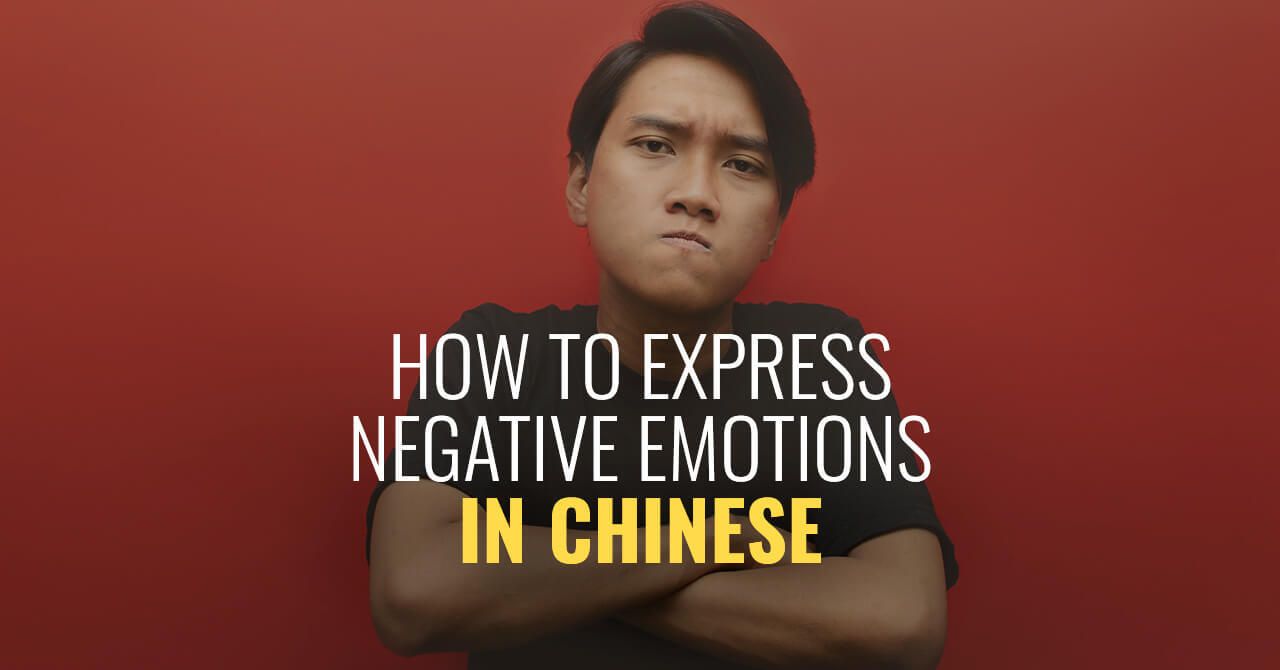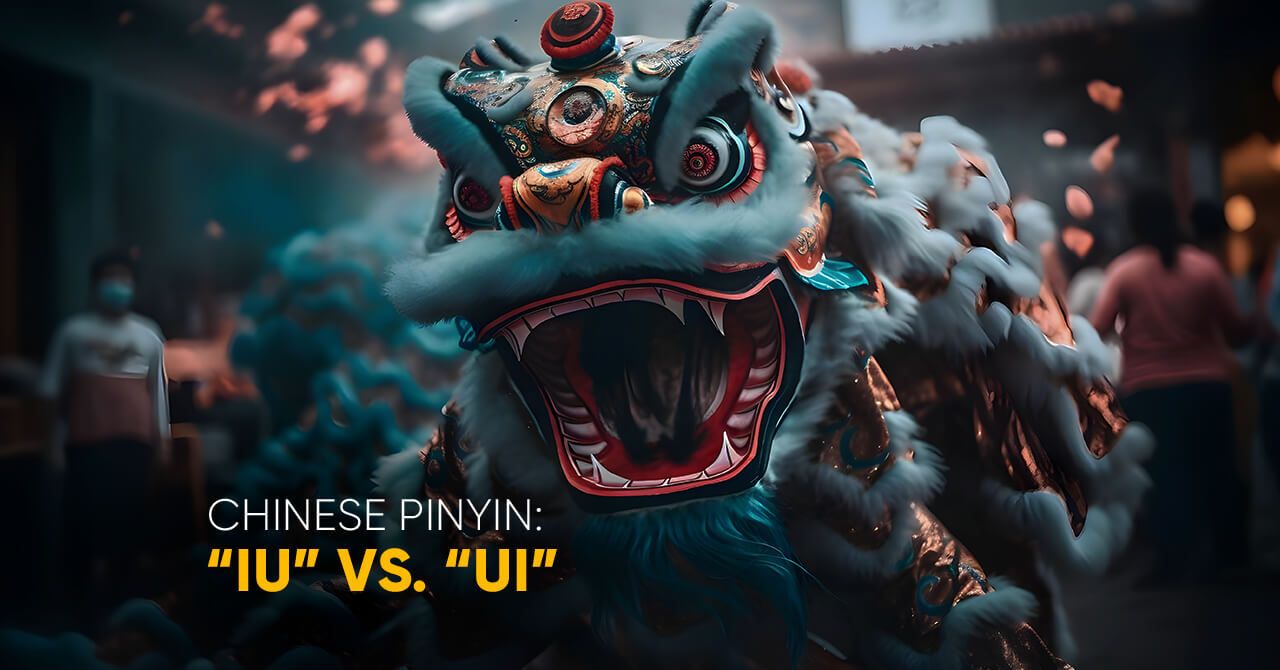
How to Express Negative Emotions in Chinese
Now let’s talk about 5 Chinese expressions for negative emotions.
Now let’s talk about 5 Chinese expressions for negative emotions.
1. 不(bù)可(kě)以(yǐ)
不可以 means “can’t.”
In daily life, you would often hear people ask “可(kě)以(yǐ)吗(ma)?” and it means “Is it okay?”
It seems easy enough to say, but if you use it incorrectly, it can be hurtful.
I once asked this question to a foreign friend, and he replied, “不可以.” That made me feel slightly uncomfortable, even though I knew he just wanted to say he couldn’t.
So let me tell you where “不(bù)可(kě)以(yǐ)” is often used by the Chinese.
It’s often used when parents are talking to their children or even when dogs are being trained, and in both cases, it’s used to express that something is not allowed to be done.
So, usually in daily life, if someone gives you a request and you want to say “no,” you can say “不(bù)行(xíng),” it still sounds direct, but it’s much more acceptable than 不(bù)可(kě)以(yǐ).
If you want to be indirect, you can add the reason why you can’t do it along with 不(bù)行(xíng).
Such as:
你现在可以帮我修理以下我的手机么?Can you fix my cellphone now?
不行,你得等20分钟。No, I can’t. you will have to wait for 20 minutes.
2. 嗯(èn)
In Chinese, we can use 嗯(èn) to mean “Yes” or “Okay” by saying this word in a polite tone. This is totally fine. But if you type this word when texting, like this, that’s not very delightful:
A: 明(míng)天(tiān) 要(yào) 一(yì)起(qǐ) 吃(chī)饭(fàn) 吗(ma)?(Would you like to have a meal together tomorrow?)
B: 嗯(èn) (Yes)
A: 12(十(shí)二(èr))点(diǎn)?(12 o’clock?)
B: 嗯(èn) (Yes)
When you text only 嗯(èn) by itself as a response, it sounds pretty indifferent so the other person might feel upset about that.
So in texts, if you want to answer “yes”, you can type “对(duì)” to show that you think what your partner said is correct and that you agreed with him.
And you can type “好(hǎo)” or, more formally and politely, “好(hǎo)的(de)” to accept the suggestion they offered you.
If you want to sound more casual and cheerful, you can type “好(hǎo)哇(wā).”
3. 不要
不要 means “do not want to do” or telling someone they can’t do something. So when you don’t want to do something, you can say「我(wǒ)不(bú)要(yào)……」.
But you must know that 要(yào) is a strong word in Chinese.
I guess you’ve learned that 要(yào) and 想(xiǎng) can both mean “want to,” but 要(yào) expresses a stronger will.
It’s okay to use 要(yào) when you want something. But when Chinese are going to give a negative answer to others, we try to be as polite as possible, so we usually don’t use 我(wǒ)不(bú)要(yào) to express “I don’t want to…” because it sounds too strong and kind of childish.
So in daily life, we usually use “我不想...” to express “I don’t want to…”
For example:
我(wǒ) 不(bù)想(xiǎng) 出(chū)门(mén)。(I don’t want to go out.)
我(wǒ) 现(xiàn)在(zài) 不(bù)想(xiǎng) 吃(chī) 任(rèn)何(hé)东(dōng)西(xī)。(I don’t want to eat anything now.)
我(wǒ) 现(xiàn)在(zài) 不(bú)要(yào) 吃(chī) 任(rèn)何(hé)东(dōng)西(xī)! (I don’t want to eat anything now.) (Strong & direct expression)
But if someone asks you whether you need something, like, if you go out to buy bubble tea, the clerk might ask you:
你(nǐ) 要(yào) 袋(dài)子(zi) 吗(ma)?(Do you need a bag?)
You can reply “不(bú)用(yòng),谢(xiè)谢(xiè)! “ or “不(bú)要(yào),谢(xiè)谢(xiè)! ” which both mean “no, I don’t need it.”.
That’s all for today! Please give me a like if the article is useful to you! You can book lessons with me to learn more about Chinese. Looking forward to seeing you in my class!
See you next time!
Chinese teacher from Beijing with 1 year teaching experience National mandarin Chinese level test Class A-second.

